The all-new Hyundai Inster has received a four-star ANCAP safety rating, following testing to the latest 2023–2025 protocols. While its active safety tech performed well, the Hyundai Inster was held back by structural and restraint-related shortcomings in occupant protection.
The result places the Hyundai Inster a notch below the five-star standard set by rivals such as the BYD Dolphin and Kia EV3, but it still offers a reasonable safety package for buyers prioritising tech and urban practicality in a compact footprint.
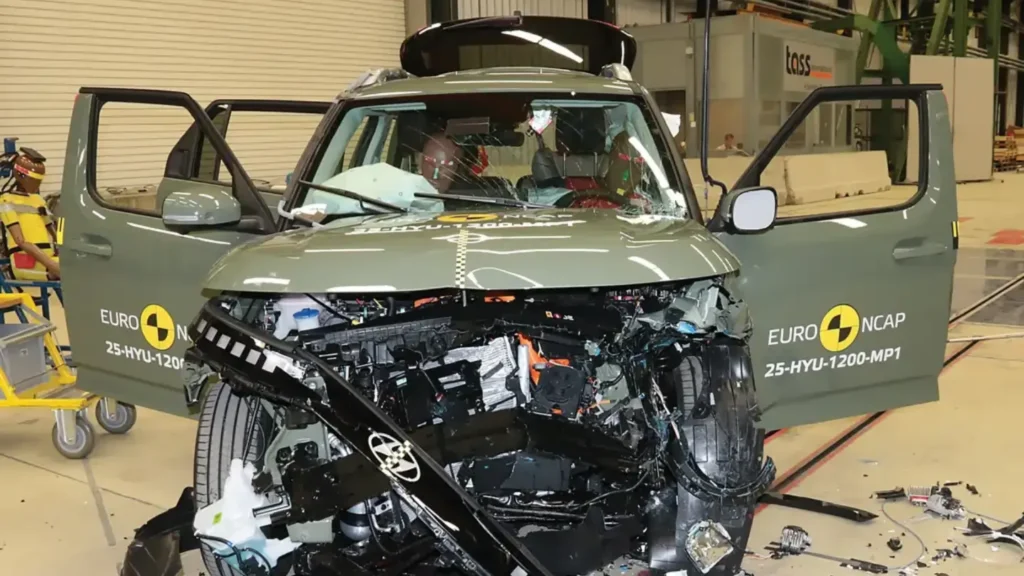
Breaking down the safety scores
Adult Occupant Protection – 70%( 28.33/40)
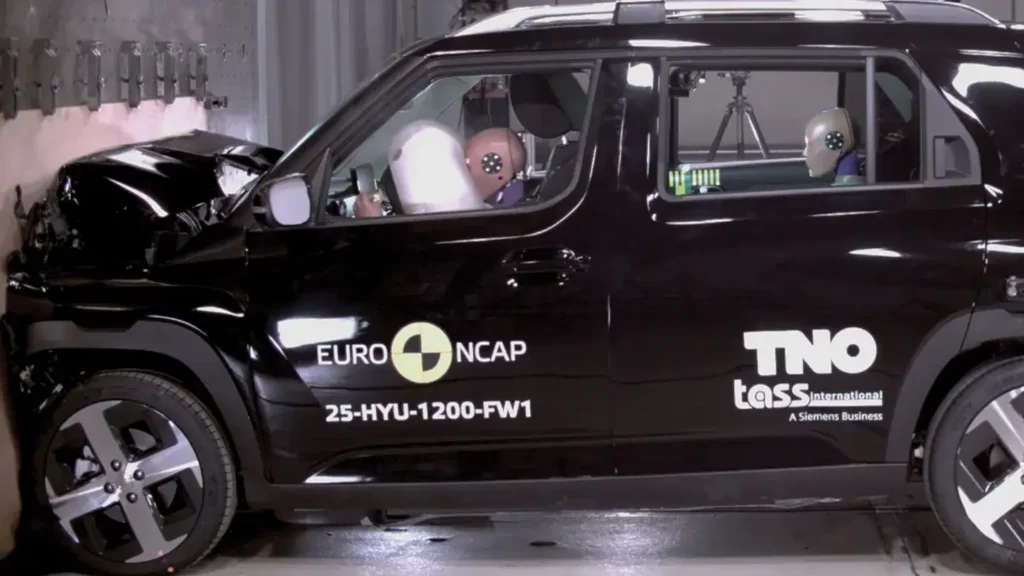
The Hyundai Inster scored exactly the minimum required to meet four-star criteria in this category. Key concerns included marginal chest protection for the driver in frontal offset (4.44/8), full-width frontal (6.87/8), and pole oblique (5.28/6) tests. Notably, no points were awarded for far-side impact protection (0.00/4)—a significant gap in lateral crash resilience.
In the frontal offset test, the driver’s airbag bottomed out, allowing contact with the steering wheel, a point of penalty. Whiplash protection was rated 2.85/3 for front seats but only 0.63/3 for rear, and rescue & extrication tools scored 2.67/3.
Child Occupant Protection – 83% (41.10/49)
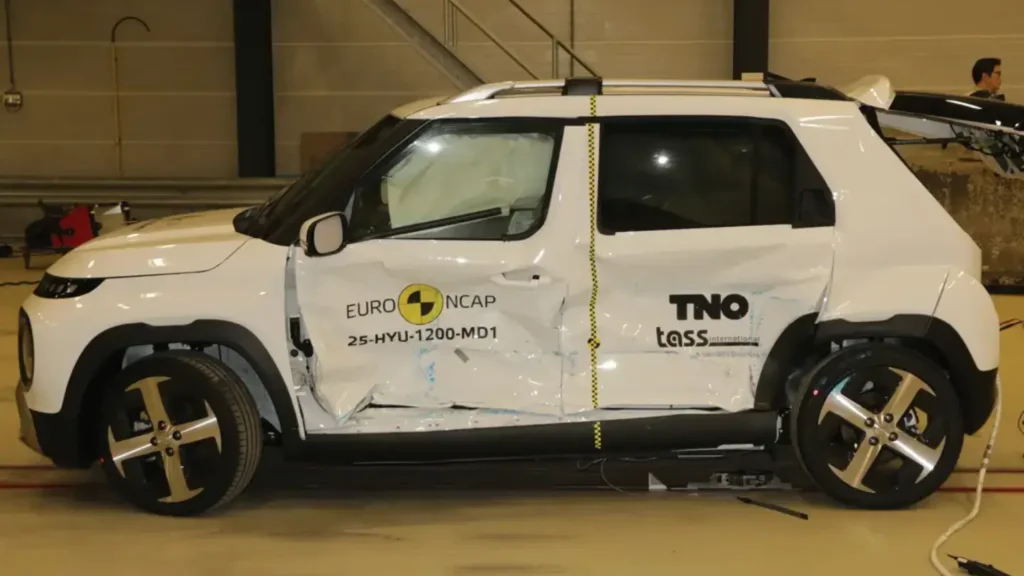
The Hyundai Inster delivered strong protection overall, especially in dynamic front (15.10/16) and side impacts (7.00/8). Child restraint installation and on-board features each achieved full scores (12.00/12 and 7.00/7 respectively). However, in the side impact test, the 10-year-old dummy’s chest protection was rated Poor, resulting in a noteworthy deduction. Still, the Hyundai Inster remains competitive in this segment for family buyers.
Vulnerable Road User Protection – 70% (44.24/63)
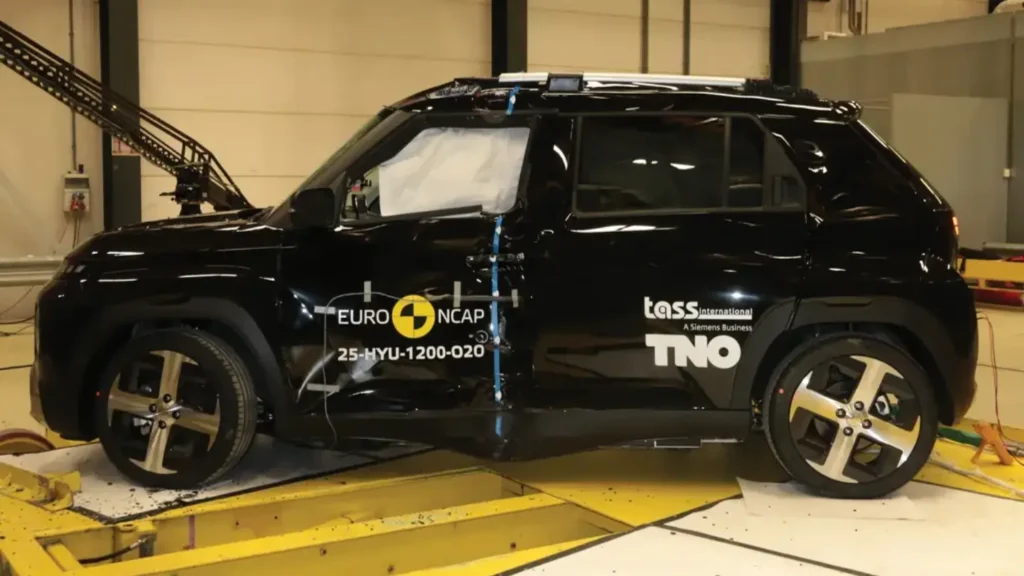
Autonomous Emergency Braking (AEB) systems worked well, especially for cyclists (7.57/9) and motorcyclists (6.00/6). However, no score was awarded for AEB Backover (0.00/2) and pelvis protection was rated 0.00/6. Head protection (9.71/12) and knee/tibia protection (8.81/12) showed a mixed but mostly positive performance. Femur protection scored a moderate 4.50/6.
Safety Assist Technologies – 69% (12.58/18)

The Hyundai Inster’s active safety suite is generous for its class, with AEB Front-to-Rear systems scoring 3.50/4, and Lane Support Systems earning 2.50/3. Driver Monitoring was rated 1.50/2, while Speed Assistance received a rating of 2.69/3. Some deductions came from Junction Assist (0.89/2) and Head-On Crash Avoidance (0.50/2), suggesting room for refinement in complex scenarios.
Here’s how key systems are distributed across variants:
- AEB – Car-to-Car (Rear): Standard on all variants
- AEB – Vulnerable Road Users (Pedestrians & Cyclists): Standard on all variants
- AEB – Junction Assist: Standard on all variants
- AEB – Backover: Not available on any variant
- Lane Support System (LSS): Standard on all variants
Notably, the absence of AEB Backover contributed to a 0.00/2 result in that sub-category. Still, the Hyundai Inster includes most critical systems as standard, making it a well-equipped offering for its class.
Standard safety equipment
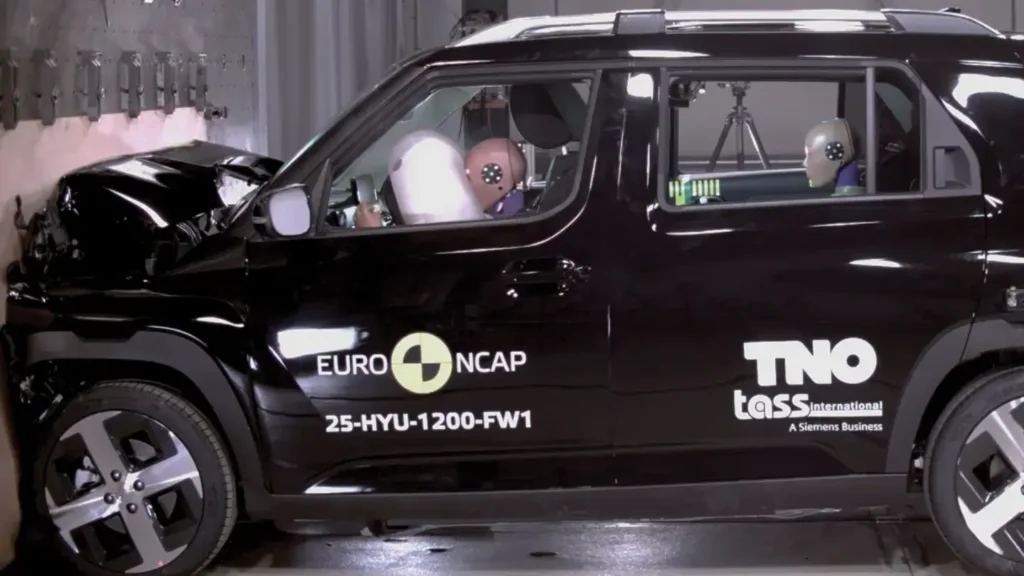
The Hyundai Inster includes a solid suite of driver assistance features, such as:
- Autonomous Emergency Braking (AEB)
- Lane Keep Assist with Lane Departure Warning
- Intelligent Speed Assist
- Driver Attention Warning
- Emergency Lane Keeping
These contributed to its strong showing in crash avoidance, despite the shortcomings in crash protection.
What does ANCAP say about the result?
ANCAP CEO Carla Hoorweg noted the importance of safety in the compact segment:
“Smaller vehicles are at a physical disadvantage on the road. That makes structural safety and crash avoidance systems all the more critical. The Inster delivers in some areas but falls short in others, and consumers should weigh that carefully.”
Who should consider the Hyundai Inster?
- Urban commuters and first-time EV buyers: With its compact size, affordable price, and decent active safety tech, the Hyundai Inster remains a practical city-friendly EV option.
- Budget-focused drivers: For those prioritising electric mobility over premium features, the Hyundai Inster is competitively priced and well-equipped.
- Safety-first families: The Hyundai Inster’s four-star result, especially in child occupant protection, may give pause to parents who prioritise top-tier safety credentials.
Final thoughts
The Hyundai Inster delivers a stylish, tech-savvy compact EV experience with solid active safety. However, marginal structural protection and restraint performance leave it trailing behind five-star rivals. For buyers seeking a city EV that’s affordable and modern, the Inster still offers value. However, those unwilling to compromise on the best safety features may want to cross-shop.
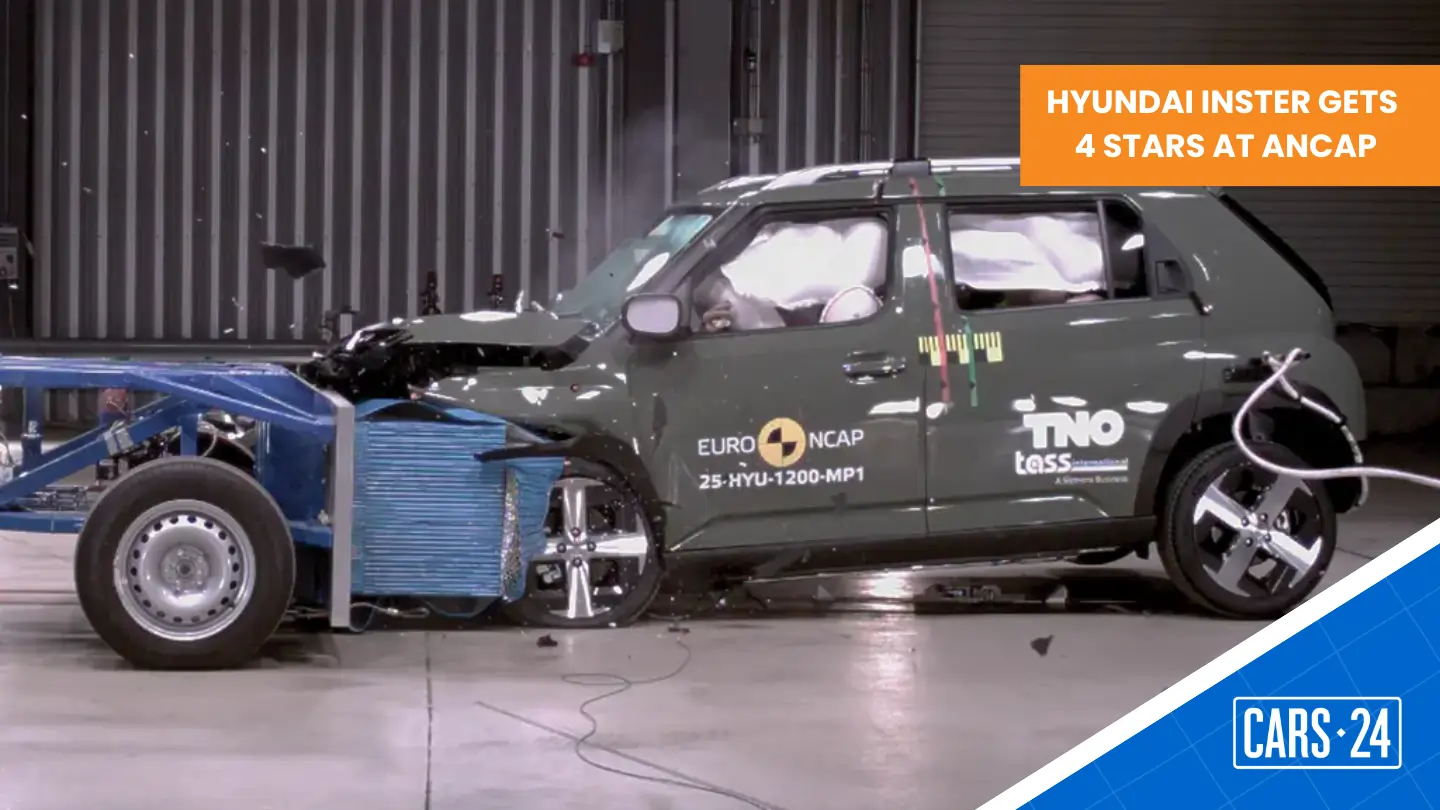
Comments
New Comment